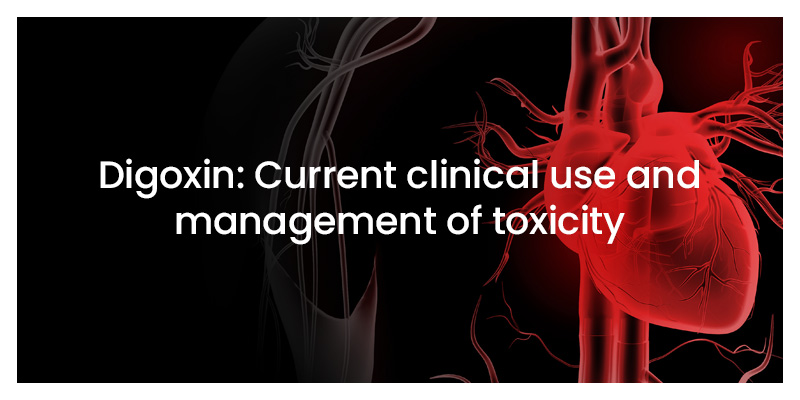Digoxin

Digoxin is a medication commonly used in the treatment of heart failure and/or atrial fibrillation. This learning module is designed to give healthcare professionals (HCPs) involved in the management of patients with atrial fibrillation and/or congestive heart failure (cardiologists, geriatricians and other HCPs that manage the care of older persons, clinical pharmacists and GPs) an introduction to the current clinical use of digoxin. The module also reviews the pharmacology and mechanism of action of this cardiac glycoside. Overdose of digoxin may provoke troublesome arrhythmias or malignant hyperkalaemia. The module highlights the mechanism of digoxin toxicity, the important diagnostic aspects and outlines the various approaches to treatment depending on its acute or chronic nature.
This educational module has been solely funded by a grant from BTG Pharmaceuticals (a SERB company). BTG were not involved in the development of the programme, content, selection of authors or their arrangements. All content has been independently developed by OmniaMed Communications.
Contributors
Professor Andrew L Clark, Consultant Cardiologist and Chair of Clinical Cardiology at the
Hull University Teaching Hospitals NHS Trust
Dr Joseph Cuthbert, NIHR Academic Clinical Lecturer in Cardiology at the Hull York Medical School
Digoxin: current clinical uses and management of toxicity
Released 19 June 2023 Programme: Digoxin 1 CPD/CME credit, 1 hour

- The use of digoxin in current heart failure management
- The aetiology and pathophysiology of digoxin toxicity
- The management of digoxin toxicity
